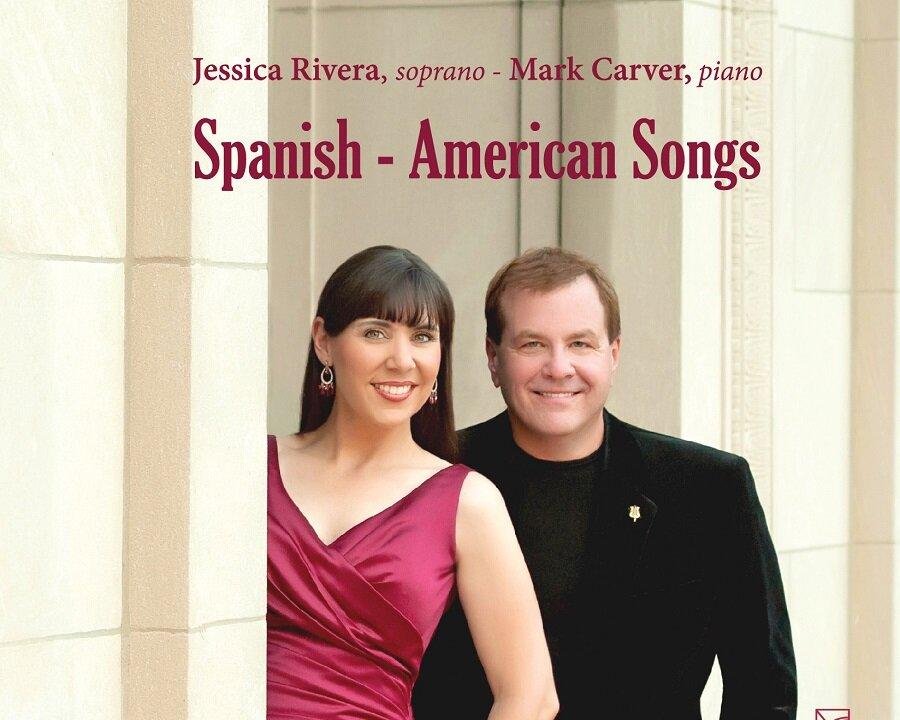Soprano Jessica Rivera has distinguished herself on the opera and concert stage with performances of classical music of the past and the present. She has performed works by contemporary composers John Adams, Gabriela Lena Frank, Osvaldo Golijov, Jonathan Leshnoff, and Nico Muhly, among others.
An American of Peruvian descent, Rivera has just released a beautiful album (on Urtext Digital Classics) titled “Spanish-American Songs” with the outstanding pianist Mark Carver. They bring to light an important body of art songs that are not familiar to many classical music listeners in this country.
Rodolfo Halffter (1900–1987) was born in Spain but lived much of his life in Mexico. He comes from a distinguished musical family. His brother Ernesto was a composer as was their nephew, Cristóbal Halffter, and Cristóbal’s son Pedro is currently a noted conductor-composer.
Rodolfo was forced into exile from Spain because of his opposition to the fascist government. Among his other accomplishments, he wrote the film scores for several Luis Buñuel classics, including “Los Olvidados” and “Nazarin.”
Rivera and Carver perform Halffter’s song cycle “Marinero en Tierra” (“Sailor on Land”), a setting of poems by Rafael Alberti, another anti-Franco artist forced into exile. The poems were written earlier when Alberti spent time in a sanitarium in the mountains recovering from tuberculosis. He was born near the Bay of Cádiz, and his poems deal with longing for the sea of his childhood.
Federico Mompou (1893–1987) was born in Barcelona, Spain. His five songs in the cycle “Combat del somni” (“Dream Combat”), written between 1942 are 1948, are settings of poems by Josep Janés.
The poems are love sonnets in which the poet conjures up elemental forces, comparing the object of his affections to the sea and the wind. The mood of Mompou’s music is contemplative, with a lilting folk element in “Jo et pressentia com la mar” (“I had foreseen you like the sea”).
“Cinco canciones de niños y dos canciones profanas” (“Five children’s songs and two secular songs”) by the Mexican composer Silvestre Revueltas (1899–1940) are settings of poems by Federico García Lorca and Antonio de Trueba. They begin with the charming “El caballito” (“Little Horse”) but become more contemplative with “Canción tonta” (“Silly song”) and then playful with “Las cinco caballos” (“The five horses”).
“Dos canciones mexicanas” were composed by Manuel M. Ponce (1882–1948). It begins with his most famous song, “Estrellita” (“Little star”), which has been performed by a variety of musicians from Benny Goodman to José Carreras.
Ponce was a trailblazer in incorporating traditional Mexican music into classical compositions. Some of his most notable works were written for the Spanish guitarist Andrés Segovia.
Miguel Bernal Jiménez (1910–1956) was a Mexican composer whose music reflected his Catholic faith. He wrote the music as well as the words for “Por el valle de rosas” (“Through the valley of roses”). Rivera conveys the purity of his vision with her crystalline soprano.
Salvador Moreno (1916–1999) composed operas as well as songs, and his works have been performed by such artists as Plácido Domingo and Victoria de los Angeles. The three songs here are based on poems by Lorca.
“Arrullo” is a lullaby by Blas Galindo (1910–1993), a Mexican composer of orchestral and chamber music in addition to vocal music.
Alberto Ginastera (1916–1983), from Argentina, set five poems by Silvina Ocampo: “Las horas de una estancia” (“The hours in a homestead”). The lyrics and the rhythmic playing of the piano reflect the passing of the seasons and the cycle of life.
Costa Rican composer Félix Mata’s (1933–) two songs, “Primavera” and “Elegia,” are settings of his own words.
This collection by Jessica Rivera and Mark Carver belongs on the same shelf as recordings of Spanish songs by Victoria de los Angeles and Montserrat Caballé.
Barry Bassis has been a music, theater, and travel writer for over a decade for various publications.






